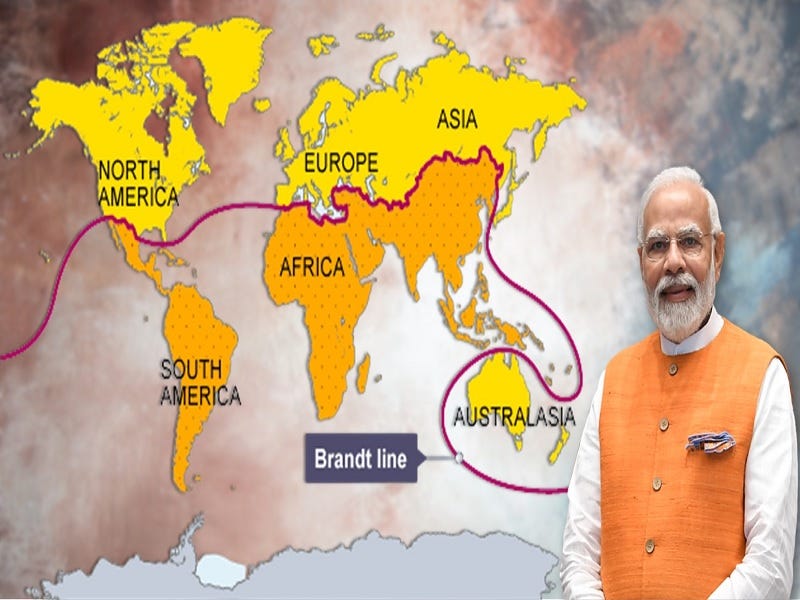Analyzing The Russian Foreign Ministry’s Endorsement Of India’s Global South Summit
Russia and India have direct stakes in accelerating the global systemic transition, albeit in different ways that are nonetheless complementary to one another in terms of the shared multipolar goal that they’re pursuing.
The Russian Foreign Ministry recently answered questions during a press conference on the performance of their country’s diplomacy over the past year. One of them was about Russia’s envisaged role within new integration system that proposed by India during its virtual hosting of the first-ever Global South Summit last month. Here’s the full answer that was provided according to the Ministry of Foreign Affairs’ official transcript, which will subsequently be analyzed:
“The Western countries, both in their colonial past and in the present, are pursuing their narrow self-serving interests. They never cared about the good of the peoples they oppressed. The egocentrism and exploitation of the global South continues today; the only difference is that whip-wielding overseers in pith helmets have been replaced by Western transnational corporations and a list of foundations and NGOs from the United States, the EU, the UK and Canada with their sophisticated methods of financial enslavement and economic coercion.
The neglect of the interests of the developing world and the divisive and arrogant policy of the West in virtually all areas have already kick-started the formation of a new international order and the creation of alternative cooperation formats. The key role in these processes is played by the civilisation states and civilizational communities, primarily from the Global South and the Global East. As a multi-ethnic and multi-faith country with a thousand-year history, Russia has a special role to play in addressing these challenges.
The ideas advanced by the Indian Foreign Minister Subrahmanyam Jaishankar at the Voice of the Global South Summit resonate with Russian diplomacy’s goals. We are also fighting for a fairer and more balanced polycentric international order, respect for the cultural and civilizational diversity of the world and traditional spiritual and moral values. We are consistent in our efforts to build mechanisms for interaction with our like-minded partners across a variety of fields such as political, economic, trade, monetary and the financial, cultural and humanitarian fields, as well as security.”
The first observation to be made is the Russian Foreign Ministry comparing traditional and modern forms of colonialism, which is meant to remind folks of President Putin’s Global Revolutionary Manifesto that he articulated on several occasions last year. More about it can be learned from the preceding three hyperlinks, but in brief, it basically positions Russia as the world’s leading anti-imperialist force for accelerating the global systemic transition to multipolarity in order to deal a deathblow to unipolarity.
Building upon this insight into contemporary colonial practices, the Russian Foreign Ministry then noted that the US-led West’s Golden Billion is ironically responsible for catalyzing the processes that will inevitably lead to the erosion this de facto New Cold War bloc’s hegemony. Had it not exploited the Global South, then this collection of developing countries wouldn’t be coalescing into their own de facto bloc led by civilization-states such as India for the purpose of jointly reforming International Relations.
Therein lies the third observation, namely that these newfound processes are aligned with Russia’s grand strategic interests with respect to accelerating the previously mentioned global systemic transition. The special operation that Moscow was forced to commence in order to defend the integrity of its national security lines in Ukraine after NATO crossed them there kinetically sped up this process, after which India’s recent summit took it even further in the economic-political dimension.
Taken together, the latest Global South Summit is the natural evolution of the multipolar processes that Russia militarily accelerated around a year ago. It heralds the Indian-led collective rise of developing countries as a third pole of influence for shattering the Sino-American bi-multipolar superpower duopoly that hitherto exerted disproportionate influence over International Relations and also ensures that unipolarity isn’t ever able to rebound after the powerful blows that last year’s events dealt to it.
The strategic insight shared in this analysis therefore adds crucial context to why Russia endorsed India’s Global South Summit and clarifies the world order that Moscow and Delhi are jointly striving to build. Both have direct stakes in accelerating the global systemic transition, albeit in different ways that are nonetheless complementary to one another in terms of the shared goal that they’re pursuing. Without a doubt, the Russian-Indian Strategic Partnership is thus among the most important axes in the world.




